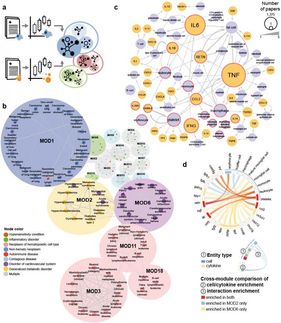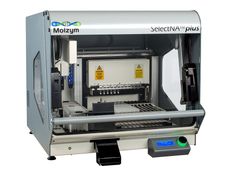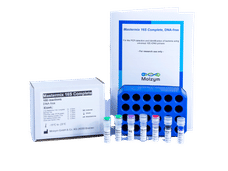CeMines Enters Into Marketing-and-Sales Partnership With Sigma Aldrich
Advertisement
CeMines Inc., a privately held company that is developing proprietary 'Molecular FingerPrinting(TM)' technology for early detection and treatment of cancer, today announced that it has entered into a marketing-and-sales partnership with Sigma-Aldrich, a leading supplier of immunological reagents to the life sciences industry.
Initially Sigma-Aldrich will be offering 51 of CeMines current 135 unique antibodies through its worldwide distribution network. In addition, Sigma- Aldrich may offer additional antibodies available from CeMines in the future. CeMines is designing up to an additional 200 unique antibodies against transcription factors and splicing factors that are expected to go into production within the next 30 days.
"We are very pleased that Sigma Aldrich, one of the world's preeminent suppliers in the life science industry, will be one of our premier customers," said Richard Cavalli, President of CeMines. "This agreement is a win-win for both companies as Sigma-Aldrich is able to purchase from our large and unique inventory of antibodies while CeMines is able to significantly increase revenue and cash flow."
"We look forward to a long and productive relationship with CeMines, as they are quickly becoming a preferred supplier of valuable antibodies for research use," said Leigh Gaskill, Market Segment Manager of Cell Signaling and Immunology for Sigma-Aldrich.
CeMines created its reagents division in 2000 to produce antibodies required for the development of its cancer diagnostics program. The reagents division utilizes research tools and techniques produced by CeMines for their own cancer research, which are then marketed to other researchers worldwide. These unique products have enabled the company to produce significant early income while simultaneously moving forward with the molecular fingerprinting research necessary to realize the goal of producing more effective, non- invasive tests for the early detection and treatment of a variety of cancers.
As part of the body's immune response to cancer, antibodies are produced to fight cancer cells. These antibodies, which reflect the molecular signature or 'fingerprint' of a tumor, are generated in cancer's earliest stages, even when the tumor is a collection of single cells. CeMines' 'Molecular Fingerprinting' technology detects these antibodies in the blood to precisely diagnose a variety of tumors. The detection of these antibodies could result in the discovery of cancer months, perhaps years, before today's conventional methods.
CeMines is building a large database of cancer patients that includes the patients' specific molecular profile, the treatment administered and the results. By comparing the molecular profile to CeMines' database, doctors will know how that specific cancer has responded to a given treatment in the past, and will have better information to make treatment recommendations. Hundreds of experimental drugs for the treatment of cancer have failed FDA approval because, until now, it has not been possible to predict which patient will respond positively. CeMines intends to leverage its ability to determine the molecular specificity of each individual tumor into Intelligent Drug Design of more precise and accurate cancer drugs.


























































